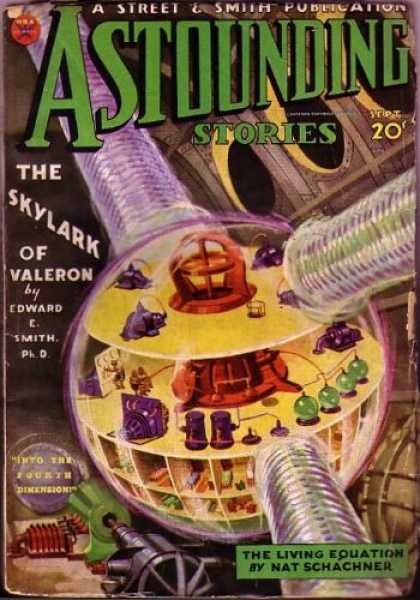|
LITR 4632: Literature of the Future |
Sample Student Final Exams 2011
|
 |
Jeannene Gazaw
The Duality of Change
When this class began, we read narratives of a future in which change occurred to the climate largely due to man’s blatant disregard for the environment. These changes, often catastrophic, caused hardship and suffering to future inhabitants and posed a bleak outlook for future Earth. Now reading of a more high-tech future, we see a quest for utopian societies and a desire for rapid change. But we see that this change, though not always good, is not always bad either. In terms of the environment, we read of two different scenarios of the future with two quite different outcomes.
When considering the high-tech world depicted in “The Logical Legend of Heliopaiuse and Cyberfiddle” we see an environmental outlook that is quite dismal. In fact, the condition if frankly stated in the passage “Earth is trashed and now there’s nowhere to go”. We read “Metacycles of techgnash have toxied the place” and “Heavy winds blow, acid waters flow”. Most live and remain indoors, though some choose to stay outdoors, but due to the conditions there “They live Outside now, but they do not live long”. When outside, Pryer watches “…the red sun sink through yellow air”. Clearly, in this future world, the focus has been on the advancement in technology with no consideration for the environment or the effects these changes will make to the Earth.
In contrast, in “The Onion and I”, the life within a computer in a virtual world has no harmful effects at all to the environment. The belief is that “…in a time of limited resources, it makes sense that people might have as rich a life in a computer as in that ‘real’ world – even a richer life – and yet not deplete, nor pollute, precious resources”. Traveling by virtual car, the family “…used no gasoline, polluted no air…” Though drastic changes are made to the family’s life, the world outside has not suffered for it and the high-tech world has done no damage to the environment.
Not only does change often affect the environment,
but in seeking the perfection of a utopian world, there are usually drawbacks.
Many of our stories depict a high-tech society in
which the individual is lost, and at some point the people become dissatisfied
either with their position in life or in a desire to return to simpler times
that they enjoyed in the past.
We see the father in “Onion” long to re6turn to his
former life in which he could carry out his passion – growing onions.
The women in “Drapes” long to cling to the fabrics
which remind them of a simpler, happier time in their past.
Because the texts in this course have been so varied, it is hard to know just which depiction is most accurate. While some instill fear, others provide hope for the future. It seems that a call to action of sorts would be in order to shine a light on issues such as protecting the environment and the need for literacy in the future. With proper dedication to these issues in the present, the future may not result in the dismal outcome often depicted in science-fiction novels.
